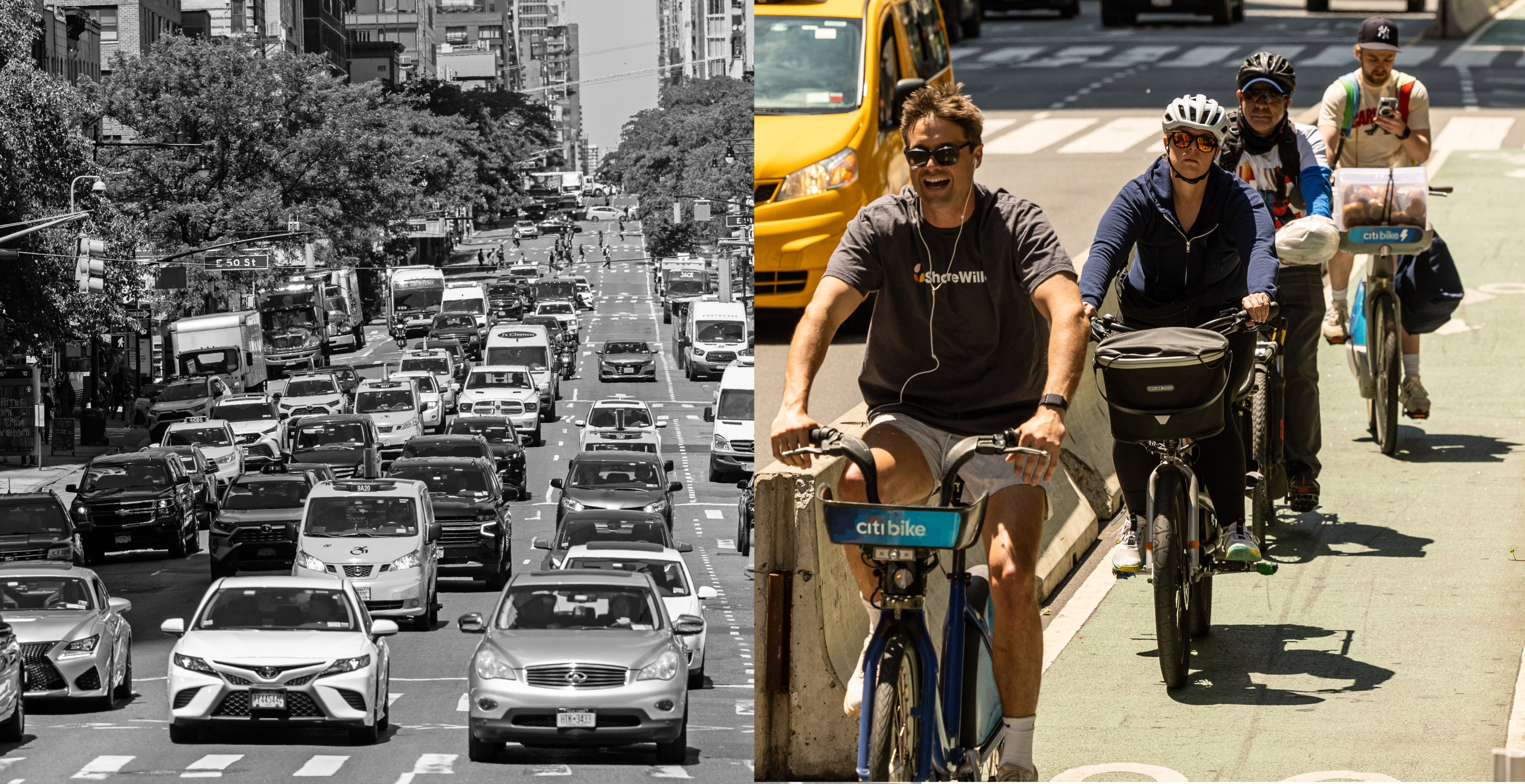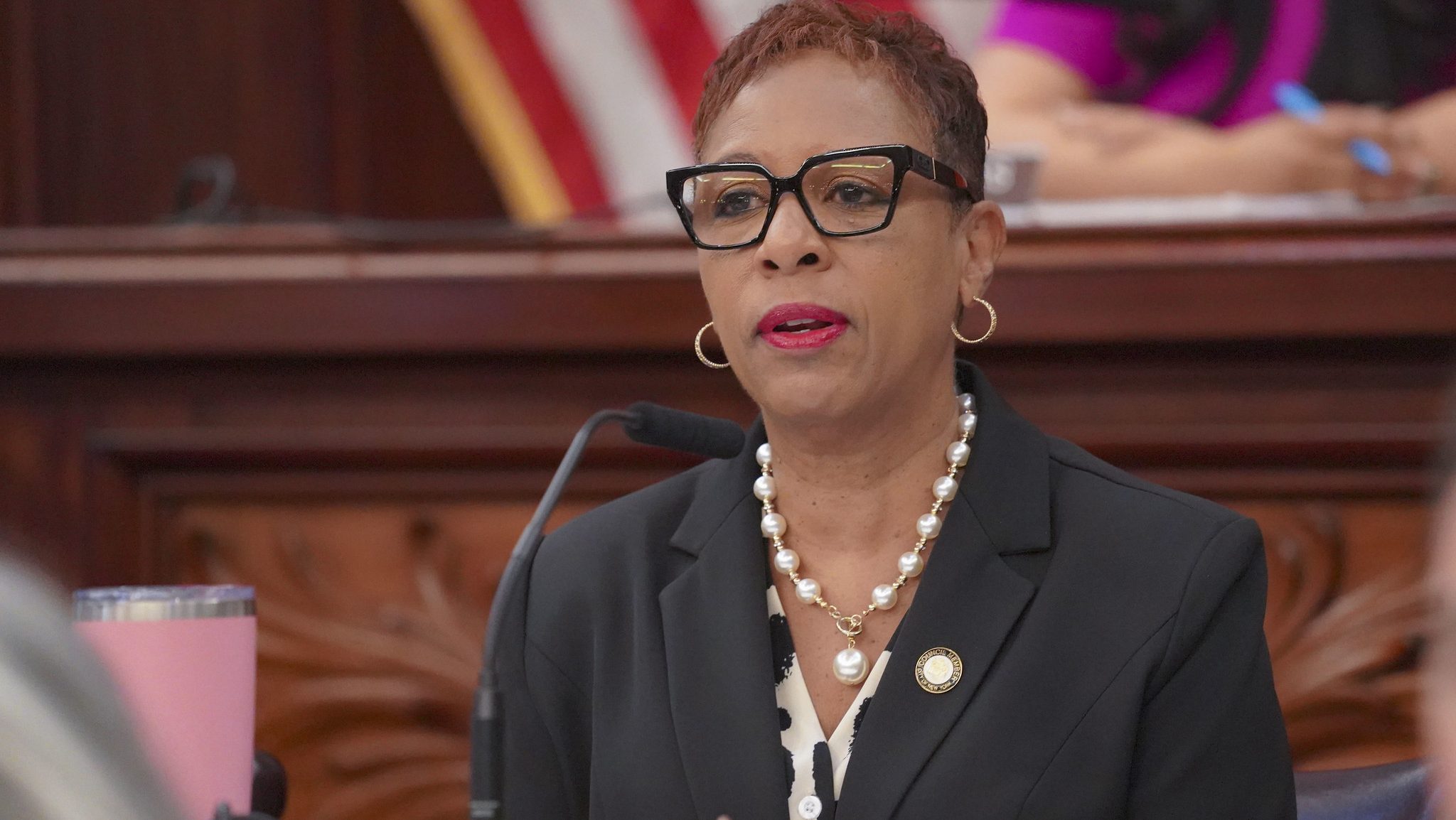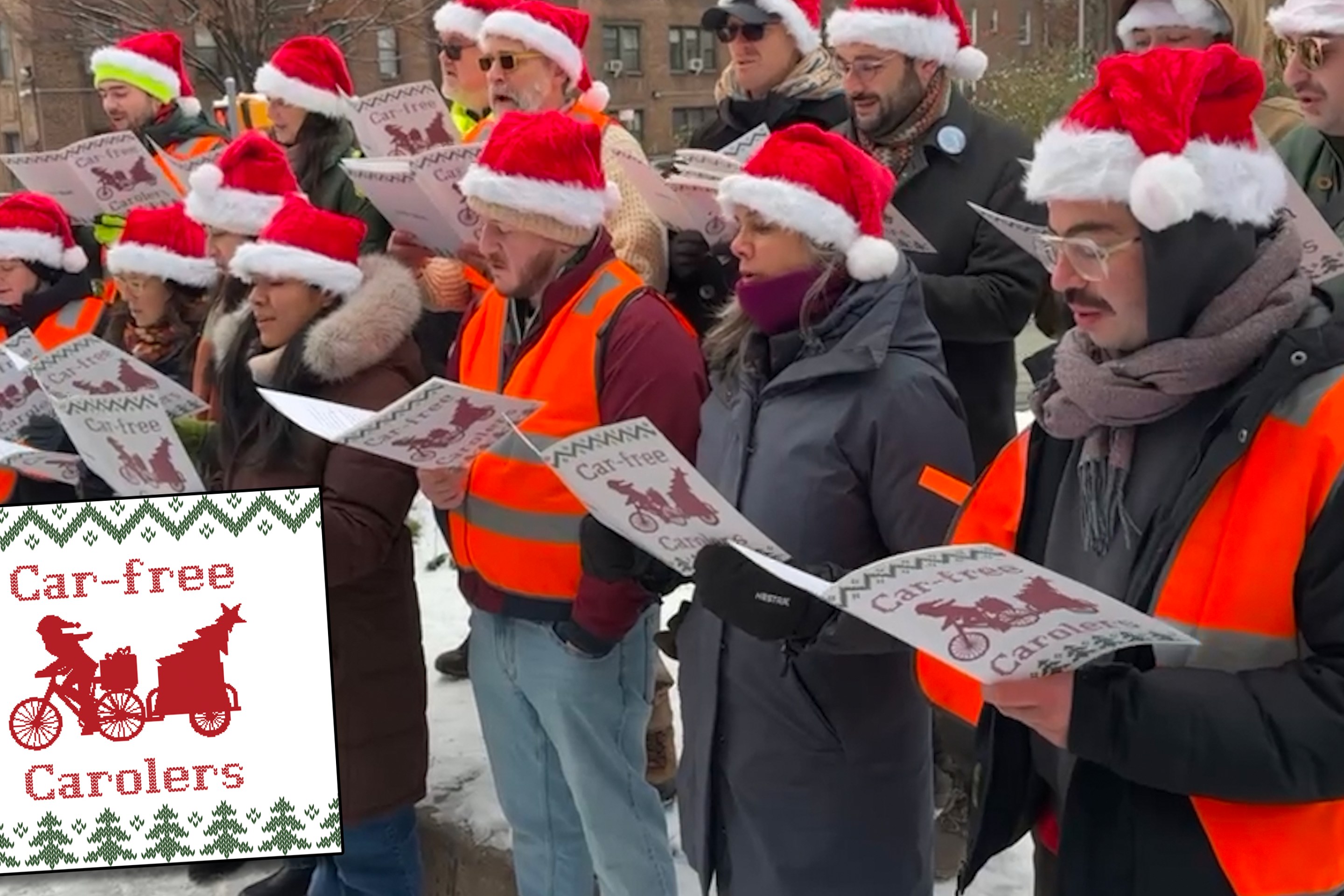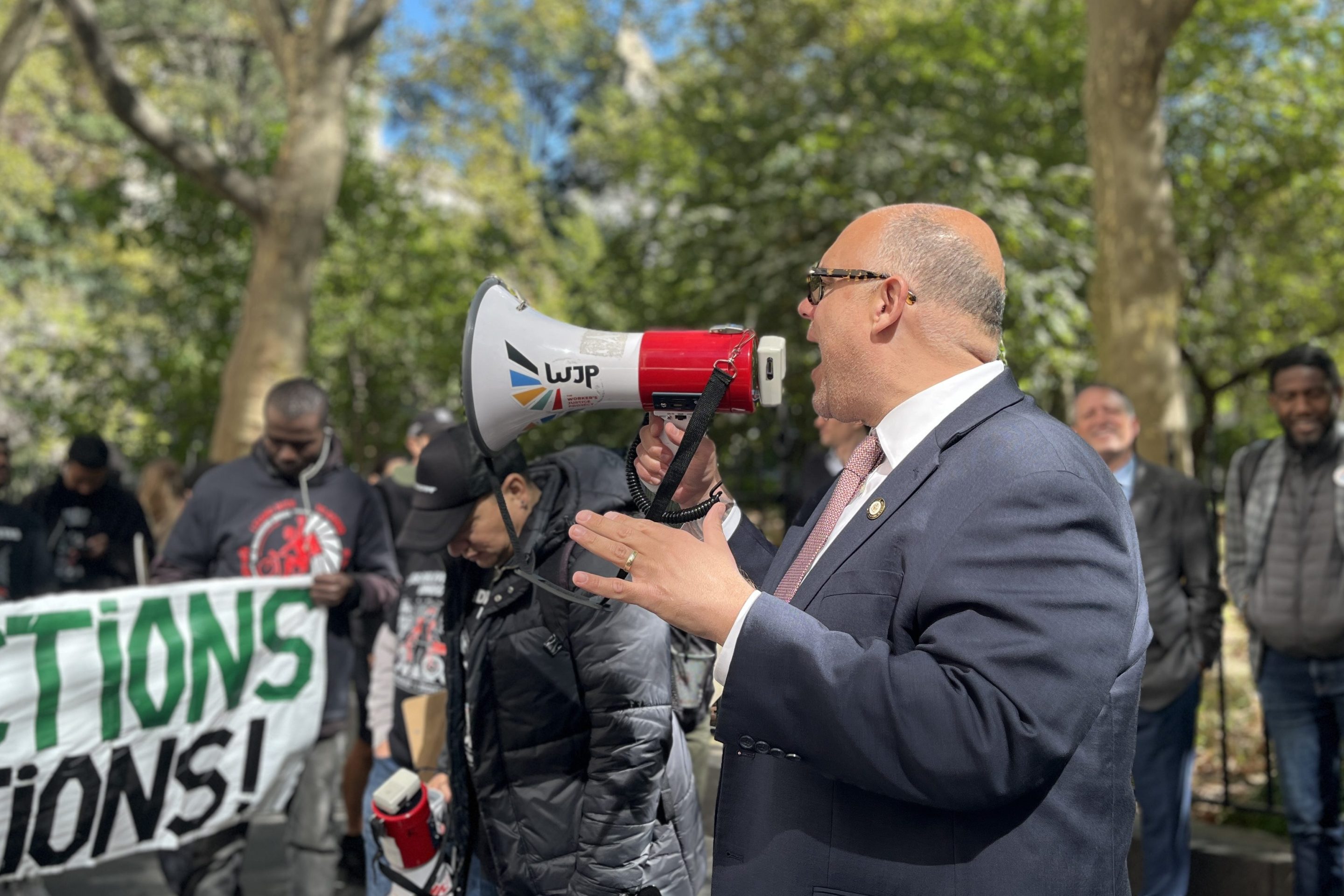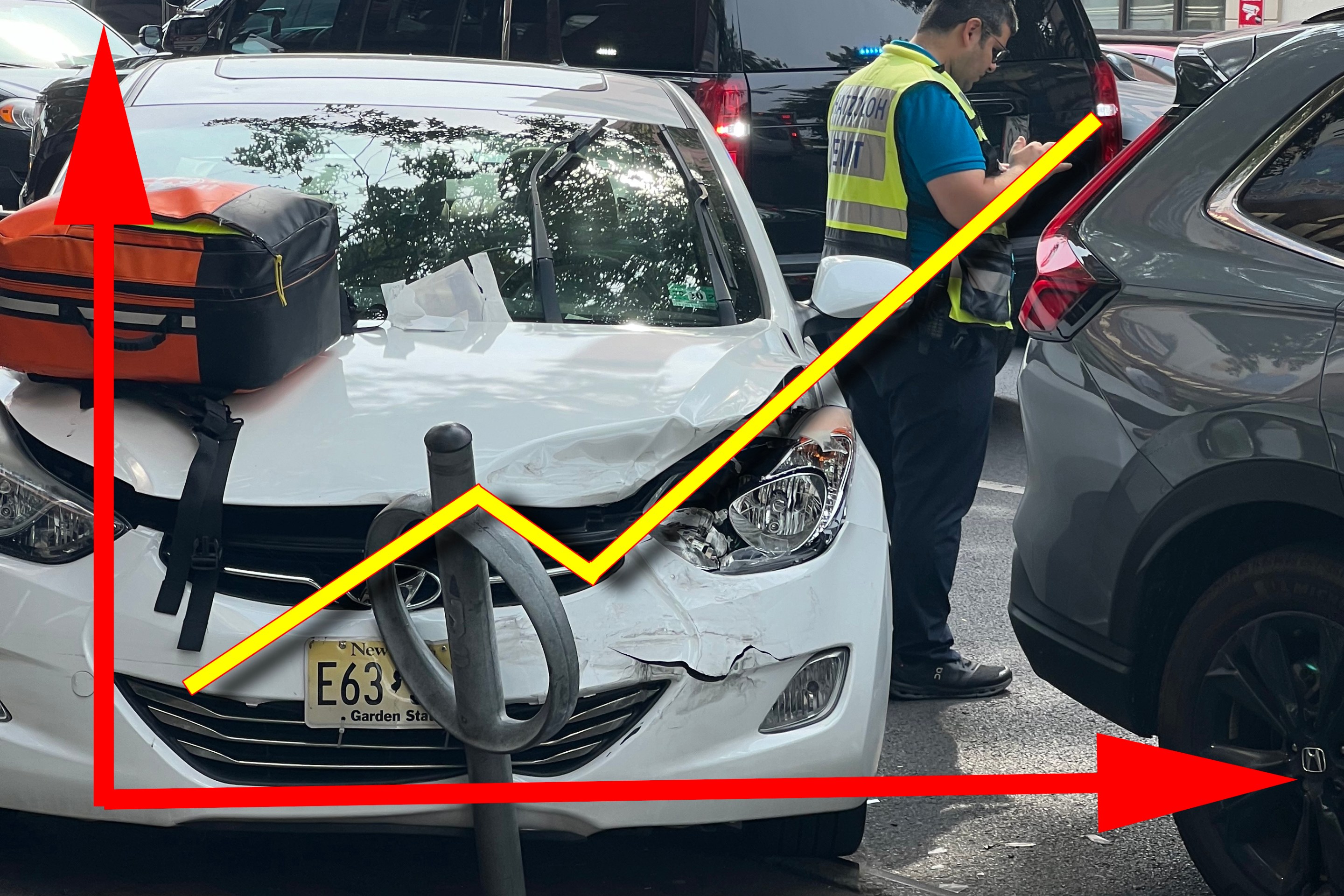The state must reduce driving by 20 percent and boost public transit in order to achieve its climate and productivity goals, advocates, armed with a new report, will argue today in Albany.
The report [PDF] by the new statewide coalition New Yorkers for Transportation Equity boosts a bill that would require transportation officials to add to the state's climate law the goal of reducing vehicle miles traveled by one-fith by 2050.
"We fundamentally want to be shifting how we think about transportation infrastructure," said state Sen. Andrew Gounardes (D-Bay Ridge), who introduced the bill last year.
New York gets $2.3 billion a year in new federal transportation funding, and another $33 billion sits in the state Department of Transportation coffers for capital projects, according to the report. But Albany still spends much of that money on building more space for cars.
Under Gov. Hochul, for example, the state spent more than 90 percent of the money from the Bipartisan Infrastructure Law on roadway projects while transit got less than 1 percent of those Biden bucks, New York Focus reported.
"If we’re just going to use that money to double down on the transportation of the past, on just purely automobile usage, we’re making a great mistake," Gounardes said.
The pol hopes his legislation will shift planners's perspectives away from metrics like "level of service," a motorist-focused measure of how much congestion a given project will create.
Under the proposed law, any state highway project would undergo an assessment to see if it aligns with the goal for fewer car trips. If it does not, the state would have to revise it or find ways offset the impacts, such as building more public transit options or encouraging development near transit itself.
The state’s stated goal is to reduce greenhouse gas emissions by 85 percent by 2050, yet officials are still forging ahead with projects to expand roadways, including Route 17 between Orange and Sullivan counties and thoroughfares in denser New York City such as the Belt Parkway, Bruckner Expressway, FDR Drive, and the Van Wick Expressway.
And the Adams administration has, in fact, asked for $800 million in funding from the feds to keep the Brooklyn-Queens Expressway choked with cars and trucks for another three generations.
Meanwhile, traffic has reached record levels after a pandemic-induced pause in the city last year as roadway fatalities surged to one of the worst tallies in the Vision Zero era.
“We need to make an about-face, and this bill is about that,” said Danny Pearlstein of the transit advocacy group Riders Alliance, which is part of the coalition behind the report. “Reducing vehicle miles traveled is a way of signaling to the DOT it’s time to realign its priorities around the 21st-century priorities of climate and equity."
The Empire State once boasted a sprawling transportation network such as the more than 1,100 miles of electric streetcars, the now-abandoned Buffalo Central railway terminal, which in its heyday served more than 200 trains a day, and a seven-mile subway line in Rochester built in the bed of the old Erie Canal.
Many subsequent highway projects tore apart the state’s poorest communities, which the officials should prioritize by funding clean transportation infrastructure instead of more highways, according to Pearlstein.
“You’re expanding the road and that means it’s harder to reconnect the communities in the future,” he said.
The law is modeled after a similar measure in Minnesota, where officials adopted a goal to reduce vehicle miles traveled by that amount over the same timeline. One study estimated this shift in spending on car infrastructure could save the Gopher State $91 billion in fuel and health costs and avoid 2,800 traffic deaths over two-and-a-half decades.
Another proposal in the state legislature would unlock highway cash for greenway projects, repealing the current setup where state grant funds actively discourage reducing car lanes.
Hochul's office declined to opine on the bills, with spokesman John Lindsay saying the governor would "review any legislation that passes both houses."
The rep defended the state's chief executive record, listing her efforts to fund the Metropolitan Transportation Authority away from a fiscal cliff last year, along with DOT projects like tunneling Buffalo's Kensington Expressway, replacing the I-81 viaduct in Syracuse with a boulevard, and capping the Cross-Bronx Expressway, none of which has happened yet.
